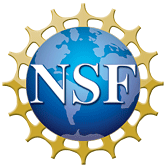 |
|
Texas Tech University Health Science Center El Paso |
|
915-215-4263 |
|
|
Anjali Joshi |
|
Texas Tech University Health Science Center El Paso |
The Joshi Lab is interested is studying the late stages of the virus life cycle mainly virus assembly and budding. Overall, the aim of her research is to provide novel insights into the molecular mechanisms governing retroviral replication and to apply this information towards the development of novel antiretroviral agents. The Joshi Lab also aims to understand the basic biology of other important viral pathogens like West Nile virus and Dengue virus aimed with the objective to not only advance the field of basic virus biology but also open novel avenues for treatment. The rapidly mutating nature of HIV and the adverse effects associated with routine drug therapy solicits the development of alternative therapeutic interventions. One of the obvious alternatives to chemotherapy is gene therapy. An attractive alternative gene therapy approach is to utilize dominant negative (DN) HIV proteins to target HIV life cycle. In this regard, the Gag and Envelope proteins of HIV-1 remain an attractive yet unexploited target for anti-HIV gene therapy. The Joshi Lab aims to Identify and design viral vectors expressing DN Gag and Env proteins individually and in combination and test their potential to inhibit WT virus replication. Her lab also proposes to take this aspect a step further in developing and optimizing vectors expressing shRNAs against one or more host factors important for HIV-1 assembly and release. She also wishes to target and optimize the delivery of above vectors in CD34+ stem cells for in vivo HIV therapy for patients not responding to conventional HAART regimens. Virus assembly not only requires the viral Gag protein but also the help of host factors to complete the process of virion generation. It has been shown that HIV-1 assembly makes use of host components like Tsg101, Alix, Adaptor protein complexes, PIP2, POSH, Annexin etc. for completing the process of virion genesis and budding from cells. Joshi et al have previously shown that the GGA and Arf proteins are important for retrovirus budding. Recently they identified the host SNARE proteins as important mediators of HIV assembly by targeting the Gag protein to the plasma membrane. As part of her lab's goal of defining cellular machinery involved in Gag trafficking and virus particle release, she aims to understand the mechanism behind SNAREs modulation of HIV budding. Besides retroviruses, other viruses also utilize the host machinery to complete their replication. WNV and Dengue virus are important pathogens causing dire morbidity and mortality. WNV genome replication is known to occur in the cytoplasm in the perinuclear region and virus assembly occurs on the membranes of rough ER. Progeny virions are transported to the plasma membrane via the Golgi complex followed by release via exocytosis. Like other viruses, flaviviruses also take advantage of the host cell machinery for assembly and budding from cells. However, very little is known about the viral domains as well as host components that aid in this process. The Joshi lab proposes to study the virion components as well as host factors that aid in WNV assembly and release. Dr. Joshi obtained her Ph.D. in immunology from the College of Veterinary Medicine at North Carolina State University. She completed her post-doctoral training in the lab of Dr. Eric Freed at the National Cancer Institute of the NIH before joining TTUHSC El Paso.
Content credit by:
Texas Tech University Health Science Center El Paso, source http://elpaso.ttuhsc.edu/research/biomedical/coe/infectious-diseases/anjali_joshi.aspx


